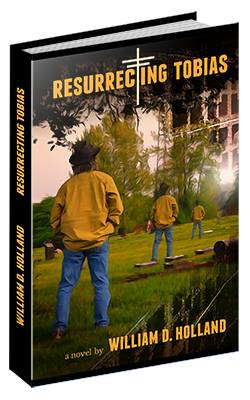Wring the Most out of Your Writing
A Flash from the Past
For those of you still in diapers, so to speak, I’m going to tell you the origin of this article before I actually, well, write the article.
I was born in 1948, and during my early childhood, modern conveniences were unheard of in our household. My folks were lower-middle class, and they worked hard to pay the bills. There just wasn’t any money left over for conveniences.
One thing I clearly remember from those very early days was my mother doing the laundry down in the basement. We did not have a washing machine. All laundry was done using what I call a wringer washer. There was a metal tub, and a hand-cranked wringer. You dipped the clothing in the tub of water, cranked it through the wringer to get the moisture out of it, and then you hung it on the clothesline to dry.
Now consider your writing. Are you wringing the most out of it, or are you putting it on the clothesline while it is still dripping wet?
You may not know what I’m talking about, but hopefully you will by the time I’m done with a few examples. At the risk of seeming self-serving, I’m going to use some passages from my last novel, Resurrecting Tobias, and from my latest, unfinished, novel, Shadows Kill, to demonstrate how you can dig deeper and get the most out of your writing.
I have mentioned before my admiration for writers like John Steinbeck who seemed to embrace brilliance in every paragraph that they wrote. On my best days I might write one brilliant sentence. To do that over and over again for three-hundred pages is beyond my imagination….but that is my goal. I don’t know what your goal is, but if you are interested in moving to the next level of your craft, then these examples might prove helpful to you.

Setting the Mood
From "Resurrecting Tobias:"
“This is the underbelly of the monster we call civilization, the side of town you won’t find in the tourist brochures, and it is featured each night in every city across the Red, White and Blue. Take a deep breath and inhale the aroma of piss and vomit, ten-day old trash and fear. Hope flows from the building gutters. Misery pools on the streets below. The politicians ignore it and hope it will go away without affecting tourism too badly. The “decent folks” avert their eyes and drive just a bit faster on their way to Grandma’s house, and the residents sentenced to life without bars just keep on keeping on, waiting for nothing and expecting less.”
My goal with this passage was to establish a dark mood. I believe I did so by appealing to the senses of my readers. Hopefully, as you read this passage, your senses are on alert. You can see the darkness. You can smell the piss and vomit. You can sense the fear and possibly even hear the sounds of agony in the background.
Most of you have seen such a scene in your own lives, so you have a frame of reference that you can relate to. That is what a writer hopes to achieve. The writer is a miner, digging for commonalities that the reader will recognize.
Tapping into Emotions
Again from "Resurrecting Tobias:"
“ Whatever my problem was in the past, this time was different. The years rushed by parallel with the hours. Sights and sounds from the past invaded my semi-consciousness, faces and names and actions taken and not taken, all there for me to see; all there for me to learn from. The mistakes were served up with a side dish of humble pie. The acts of good were sprinkled in for flavoring. All together it was a tasty meal of my past and a promise of a better future. I saw my mom and dad again. I saw a man wearing prison orange. I saw the insignia of government power wrapped in the red, white and blue, the faces of those gone far too young, and a child I never held, and yet, loved.
Maria floated by smiling her love, whispering words of support, and lifting me up with her touch, and faces of those I had helped along the way stopped by for a howdy and a shoulder punch. I also saw three children I did not recognize, playing in a yard, laughing as they ran through a sprinkler, youthful and lanky and obviously in love with life, and next to them three people who died much too early because of my actions, smiling at me and telling me that it was all right.”
Some writers use dream sequences as a way of foreshadowing what is going to happen in the remainder of the book. I decided to have my main character visit an Indian sweat lodge. The passage refers to what he saw during a hallucination while in that sweat lodge, and it all serves the purpose of foreshadowing. In effect, I have told my readers what is going to happen during the rest of the book, without really giving away any important plot facts.

Finding Our Dark Side
For this lesson, let’s visit my latest novel, "Shadows Kill:"
“I do not want you to suffer, my dear. It is Mr. Baker who will feel the pain of loss. I will make your ordeal as painless as possible. I promise you that. Perhaps you would like to know what I am going to do. Yes?”
“This is a lovely knife, don’t you think? Perfectly balanced you know. The Japanese take great pride in crafting only the finest knives. This particular one is called a Hira because of its blade design. See how the edge bevels reaching all the way from the ha to the mune with no flats in between? This tanto is twelve inches long and approximately two-hundred and fifty years old. Nothing but the finest for you, my dear.”
He placed the point of the tanto on her chest.
“Now you must not squirm so or I’ll miss my mark. I am going to plunge this into your heart. You will only feel pain for a second or two and then nothingness will fall upon you, that blessed destination we all secretly long for. Shhh, don’t carry on so. Now, where was I? Oh yes, there will be the initial cut, and then after you have left this world I will carve out a specific design for our Mr. Baker. I’m sure he will find it interesting.”
“I want to thank you again for assisting me, Nanci. You have been very gracious about this whole ordeal. Rest well my dear.”
I do not rub shoulders with evil very often, so writing about a character who is inherently evil was a stretch for me. I had to remember back to one of my favorite evil characters, Hannibal Lecter, for the inspiration. I wanted a character so chilling that my readers would actually have goose bumps while reading his words.
When you are writing about something you have little experience with, find inspiration from any source possible. Remember, too, that we all share certain vignettes from life. We have all seen horror movies. Tap into that and make it work for you.
Join me on my blog
- William Holland | Helping Writers to Spread Their Wings and Fly
Tips and discussions about writing

Final Thoughts
Here is the bottom line for you to consider: we will never improve as writers if we don’t stretch our limits. Get out of your comfort zone as soon as possible.
Robert Parker, an American novelist, wrote a series of novels about a private investigator named Spenser. I was a huge fan of that series for a number of years, but I began, ever so slowly, to become disappointed with the series. It seemed to me that Parker had found his comfort level, and that he really wasn’t stretching himself as a writer in his later years. That’s a purely subjective opinion, of course, but it serves as an example of the point I am making. Reach beyond what you are doing and discover what you are capable of doing.
2014 William D. Holland (aka billybuc)
“Helping writers to spread their wings and fly.”










